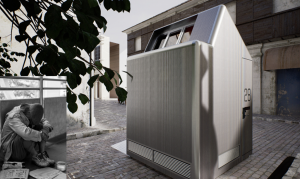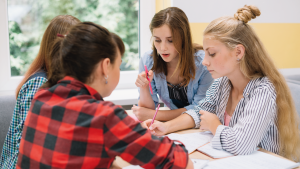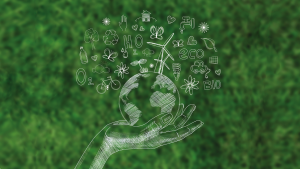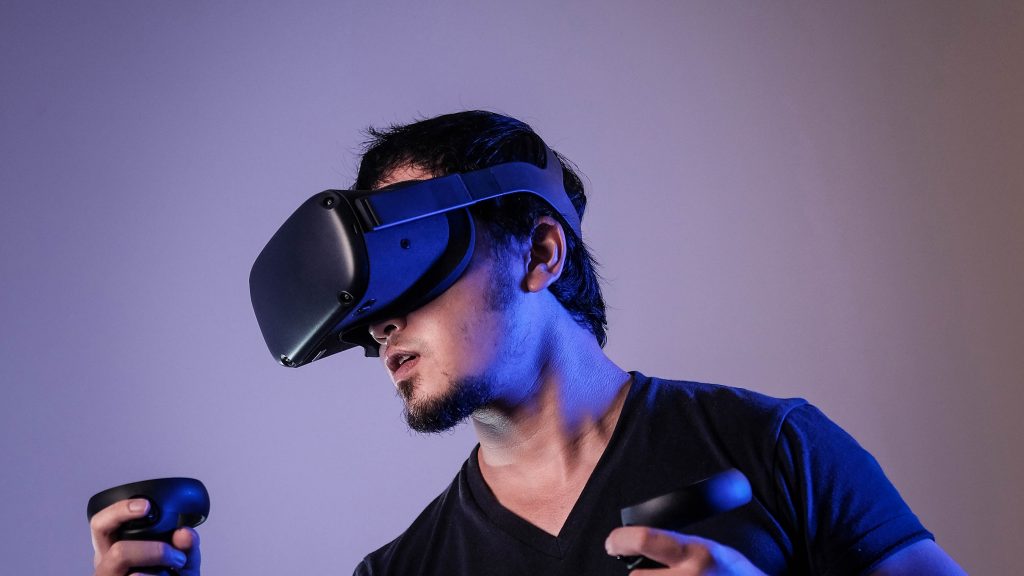- IPVC
- Sobre o IPVC
- Escolas IPVC
- Serviços
- Académicos
- Administrativos e Financeiros
- Bibliotecas
- Expediente e Arquivo
- Gabinete de Avaliação e Qualidade
- Gabinete de Comunicação e Imagem
- Gabinete de Mobilidade e Cooperação Internacional
- Informática
- Recursos Humanos
- Apresentação Geral
- IPVConcilia
- Avaliação de Desempenho
- Procedimentos Concursais
- Título Especialista
- Formação Profissional
- Publicitação de Atos
- Bolsa de Recrutamento de Pessoal Docente
- Lista de Pessoal Docente
- Lista Nominativa
- Lista de Pessoal Técnico e Administrativo
- Segurança e Saúde no Trabalho
- Avaliação de Satisfação
- Documentos de Gestão de Recursos Humanos
- Documentação de Apoio
- Secretariado da Presidência
- Técnicos
- Unidade de Gestão de Projetos
- Sistema de Gestão
- Serviços de Ação Social
- Estudar
- Cursos
- Estudante IPVC
- Guia de Acolhimento
- Provedor do Estudante
- Representação da Comunidade Estudantil nos Órgãos da Instituição
- Calendário Escolar
- Propinas e Emolumentos
- Renovação de Inscrição
- Horários e Assiduidade
- Mapa de Exames
- Estatutos Especiais
- Certidões, Inscrições e Requerimentos
- Frequência de Unidades Curriculares Isoladas
- Creditação / Certificação de competências
- Suplemento ao Diploma
- Carta de Curso
- Mobilidade
- Apoio aos alunos
- Legislação e Regulamentos
- Estudante Internacional
- Candidato IPVC
- Acesso e Ingresso
- Ano Zero
- Gabinete de Acesso
- Candidaturas ao Ensino Superior
- Regimes Especiais de Acesso
- Concursos Especiais
- Maiores de 23 anos
- Diplomados de Vias Profissionalizantes
- Reingresso, Mudança de Instituição/Curso
- CTeSP
- Mestrados
- Pós-Graduações
- Frequência de Unidades Curriculares Isoladas
- Matrícula e Inscrição
- Estatutos Especiais
- Propinas e Emolumentos
- Legislação e Regulamentos
- Reconhecimento de Graus e Diplomas
- ALUMNI
- Innovation
- Investigar
- Internacional
- Viver
- IPVC
- Sobre o IPVC
- Escolas IPVC
- Serviços
- Académicos
- Administrativos e Financeiros
- Bibliotecas
- Expediente e Arquivo
- Gabinete de Avaliação e Qualidade
- Gabinete de Comunicação e Imagem
- Gabinete de Mobilidade e Cooperação Internacional
- Informática
- Recursos Humanos
- Apresentação Geral
- IPVConcilia
- Avaliação de Desempenho
- Procedimentos Concursais
- Título Especialista
- Formação Profissional
- Publicitação de Atos
- Bolsa de Recrutamento de Pessoal Docente
- Lista de Pessoal Docente
- Lista Nominativa
- Lista de Pessoal Técnico e Administrativo
- Segurança e Saúde no Trabalho
- Avaliação de Satisfação
- Documentos de Gestão de Recursos Humanos
- Documentação de Apoio
- Secretariado da Presidência
- Técnicos
- Unidade de Gestão de Projetos
- Sistema de Gestão
- Serviços de Ação Social
- Estudar
- Cursos
- Estudante IPVC
- Guia de Acolhimento
- Provedor do Estudante
- Representação da Comunidade Estudantil nos Órgãos da Instituição
- Calendário Escolar
- Propinas e Emolumentos
- Renovação de Inscrição
- Horários e Assiduidade
- Mapa de Exames
- Estatutos Especiais
- Certidões, Inscrições e Requerimentos
- Frequência de Unidades Curriculares Isoladas
- Creditação / Certificação de competências
- Suplemento ao Diploma
- Carta de Curso
- Mobilidade
- Apoio aos alunos
- Legislação e Regulamentos
- Estudante Internacional
- Candidato IPVC
- Acesso e Ingresso
- Ano Zero
- Gabinete de Acesso
- Candidaturas ao Ensino Superior
- Regimes Especiais de Acesso
- Concursos Especiais
- Maiores de 23 anos
- Diplomados de Vias Profissionalizantes
- Reingresso, Mudança de Instituição/Curso
- CTeSP
- Mestrados
- Pós-Graduações
- Frequência de Unidades Curriculares Isoladas
- Matrícula e Inscrição
- Estatutos Especiais
- Propinas e Emolumentos
- Legislação e Regulamentos
- Reconhecimento de Graus e Diplomas
- ALUMNI
- Innovation
- Investigar
- Internacional
- Viver

Blended Intensive Programme (BIP)
Presentation
The new Erasmus+ Program 2021-2027, promotes the Blended Intensive Program – BIP, following the Erasmus Intensive Programs, from previous programs.
These short-term intensive programs feature innovative ways of teaching and learning, including online cooperation resources. Programs must include learning, where transnational and transdisciplinary groups work together to address challenges, linked to the United Nations, sustainable development goals or other societal challenges identified by regions, cities or companies, it can be promoted biannual. It allows new and more flexible mobility formats that combine face-to-face mobility with a combined intensive virtual part. These programs aim to reach students from different areas and study cycles, regardless of their origin or country.
During the course of the combined intensive programs, groups of students are required to undertake a short-term, face-to-face mobility abroad, combined with a mandatory virtual component that facilitates the exchange of collaborative online learning and teamwork. The virtual component must bring students together online to work collectively and simultaneously on specific assignments that are integrated into the intensive program and count towards overall learning outcomes.
In summary, the Blended Intensive Programs:
- Must be developed and implemented by at least 3 higher education institutions (HEIs) with Erasmus Charter – ECHE, coming from at least 3 program countries;
- Face-to-face mobility must last between 5 and 30 days;
- No eligibility criteria have been defined for the duration of the virtual component;
- Both mobility (virtual and face-to-face) combined must grant a minimum of 3 ECTS credits to students;
- The minimum number of participants in a Blended Intensive Programs is 15 (not including teaching staff / staff involved in running the program) to be eligible for funding;
- They can be open to students, professors and employees of external higher education institutions, outside the partnership.
- The face-to-face activity can be carried out at the destination HEI or at any other centre in the country of the destination HEI.
(Português) BIP 2025
(Português) Abaixo poderá encontrar todas as informações relativas aos Blended Intensive Programme (BIP) desenvolvidos pelo IPVC no ano de 2025.
(Português) Design as a tool for Social Innovation
(Português) 
(Português)
The most disadvantaged in society are a visible problem that is trying to be invisibilised by society itself, but looking the other way, the problem doesn’t go away. Despite the initiative of various associations, many of these problems are not resolved. Homeless people, families in need and young people in care are some of the ‘invisible’ causes for our society.
It should be noted that there are different proposals/solutions for the aforementioned collectives. Although some of these responses are not reflected in society, the reasons are complex and difficult to resolve. Homeless people are often on the streets, not because there are no solutions, but because the solutions don’t suit their way of life, preferring to live on the streets rather than abide by the rules laid down by the associations that offer them a room or a space to live.
Social Innovation is a process that aims to develop and implement effective solutions to these social issues, and this is where design can come in to present solutions that dignify the lives of these people.
The Polytechnic Institute of Viana do Castelo is offering, in cooperation with the Valladolid School of Design (ESI), Spain, and the Coburg School of Interior Design, Germany, a Blender Intensive Programme.
Erasmus+, on the theme of the importance of design in the problem of Social Innovation.
(Português)
English
The in-person component of the BIP (physical mobility) will take place at the Sschool of Technology and ManagementSchool of Polytechnic Institute of Viana do Castelo – ESTG – IPVC.
(Português) Polytechnic Institute of Viana do Castelo
(Português) Coburg University of Applied Sciences and Arts – D COBURG01
Escuela Superior de Diseño – E VALLADO32
(Português) 3 ECTS
(Português) 19.02.2025
(Português) 07-04-2025 to 11-04-2025
Physical mobility schedule (40 hours):
Monday 07.04.2025
09:00-10.00: Registration and Opening
10:30- 11:00 Keynote speech
10:30- 11:00 Coffee break
11:00-13:00 Brief description of the problem of the most disadvantaged
13:00-15:00 Lunch
15.00 Visit to Viana do Castelo (Historic center, Sta. Luzia)
Welcone Dinner
Tuesday 08.04.2025
09:00-13:00 – Accompanying Street teams GAF and Metamorphis
13:00-15:00 – Lunch
15:00-17:00 – Questions and discussion
Wednesday 09.04.2025
09:00-10:30 – GAF conference
10:30- 11:00 – Coffee break
11:00-12:30 – Metamorphis conference
13:00-15:00 – Lunch
15:00-18:00 – Visit to the Cabedelo (ferry)
21:00-23:00. – Volunteer activity with Re-food
Thursday 10.04.2025
Free morning
15:00-18:00 – Reflective analysis of the issues explored
Friday 11.04.2025
09:00-10:30 – Final workshop
10:30- 11:00 – Coffee break
11:00-12:30 – Final workshop
13:00 Departure
(Português) Methods and Outcomes
Throughout the teaching-learning process, the syllabus will be approached using innovative pedagogical practices aligned with the following objectives:
- Understand the importance of design for society and specifically for the most disadvantaged.
- Understand the roles of the different actors (public/private associations) involved in its understanding and implementation;
- Demonstrate that the problem, which exists in all societies, can be explored, with the characteristics and possibilities of each country, and how design can dignify the lives of the most disadvantaged.
Methods and results
Teaching and learning methodologies include:
- Presentation of concepts and learning based on projects carried out at ESTG; debates on the topics covered.
- Volunteering activities with different associations in Viana in order to learn about practical cases.
- Explanation of practical and collaborative work to consolidate knowledge and develop skills; speakers are invited to express their own experiences in this area in order to enrich the debate.
- As important as the transmission/exchange of knowledge is the acquisition of sensitivity to the social problems that exist in cities, while at the same time awakening social awareness in the participants and how they can be key players in Social Innovation.
Virtual Component Description (20 hours):
(5 synchronous online hours + 15 hours of autonomous student work, asynchronous online):
5 synchronous online hours:
- Kick-off meeting. Presentation of the organising committee and participants (0.5h). Presentation by each institution (1.5h) of the Social Innovation problem
15 hours of autonomous, asynchronous student work:
- Compulsory readings that are complemented by additional resources: videos, websites and reading suggestions.
(Português)
Staff and Students from the Higher Education Institutions Partners.
Requirements: Interior Design Student
How to apply: Each candidate must hold an Erasmus short-term mobility grant funded by their home or sending institution, and must apply to their home university’s International Relations Office.
Once Erasmus financial eligibility has been verified, candidates must send an e-mail to the IPVC International Office (internacional@ipvc.pt), showing interest and also be nominated by their International Office.
The coordinator of this BIP will reply in writing to both (candidate and institution) to let them know if they have been admitted.
The minimum number of participants is 15 (between the two invited institutions) and will be filled in strict order of enrolment.
(Português)
Liliana Soares, Ermanno Aparo, Rui Cavaleiro, Jorge Teixeira, Manuel Rivas (IPVC), Loreto Navarro, Ines Escudero (ESI), Michael Haverland (CO).
(Português) Portuguese for Beginners
(Português) 
(Português)
In this course learners will develop basic skills to communicate in Portuguese with native speakers, understand basic phrases and interact in common everyday situations – such as in restaurants, shops, and hotels, etc. – while also building basic cultural awareness of Portugal’s history, people and traditions.
(Português)
English and Portuguese
The in-person component of the BIP (physical mobility) will take place at the Sschool of Technology and ManagementSchool of Polytechnic Institute of Viana do Castelo – ESTG – IPVC.
(Português) Polytechnic Institute of Viana do Castelo
(Português) Universidad de Santiago de Compostela
SUNRISE Partners
(Português) 3 ECTS
(Português) 12-16 May 2025
(Português) Methods and Outcome:
Based on a communicative methodology, learners will achieve A1-level proficiency in Portuguese, with a particular focus on speaking and listening. Authentic materials are used to provide input for vocabulary acquisition and the study of grammar and language structures, complemented by opportunities to practice with native speakers.
Physical mobility schedule: 28 h
Virtual Component Description: A brief introduction to Portugal’s language, people, culture, and traditions, rounded off by an educational quiz titled ‘Portugal from A to Z’.
(Português)
Requirements:
Recommended for absolute beginners with very little or no previous contact with the language.
How to apply:
Nomination of candidates from Home Universities to internacional@ipvc.pt and a fill and sign Erasmus Training Agreement for registration and acceptance. The International Office will write back to both (candidate and institution), to inform about acceptance and procedures.
Places are limited to 25 participants and will be filled in strict order of registration.
(Português) Maria José Azevedo Brito and IPVC International Office
(Português) Sustainable buildings and infrastructures
(Português) 
(Português)
The course Sustainable Buildings explores the integration of environmental, economic, and social aspects in the development of sustainable structures, aimed at reducing environmental impact, improving energy efficiency, and enhancing the overall sustainability of urban environments. The course covers key topics such as green building standards, renewable energy integration, lifecycle assessments, and sustainable urban planning.
Through a combination of theoretical knowledge and practical applications, students will learn how to address sustainability challenges in the built environment, including the optimization of resources, reduction of carbon emissions, and the enhancement of resilience to climate change.
Objectives:
- Understand Sustainable Development Principles:
- Analyze Environmental Impacts:
- Learn Green Building Standards:
- Explore Renewable Energy Integration:
- Promote Energy Efficiency and Resource Optimization:
- Apply Lifecycle Assessment (LCA):
- Foster Sustainable Urban Planning:
- Develop Practical Sustainable Design Skills:
- Address Climate Resilience and Adaptation:
- Encourage Collaborative and Interdisciplinary Problem Solving.
(Português) English
Campus of IPVC, Alto Minho region
(Português) Polytechnic Institute of Viana do Castelo
(Português) Polytechnic University of Viana do Castelo
University of “Goce Delcev”
University of Vasile Alecsandri
Bialystok University of Technology
(Português) 3 ECTS
(Português) 12-16 May, 2025
Physical mobility schedule (40 hours):
Day 1: Arrival and Introduction
Morning:
- Arrival and Registration
- Welcome Session: Orientation by the hosting university and introduction to the local culture, logistics, and safety protocols.
Afternoon:
- Campus/Facility Tour: Tour of the hosting university’s campus, including any sustainability initiatives or infrastructure.
- Ice-breaking Activity: Interactive session for students and staff to get to know each other.
Evening:
- Welcome Dinner: Networking event for students and faculty to meet in an informal setting.
Day 2: Sustainable Building Design and Green Certification
Morning:
- Lecture: “Green Building Standards and Certifications” (LEED, BREEAM, etc.)
- Workshop: Group activity on designing an energy-efficient building using green building standards.
Afternoon:
- Case Study Analysis: Review of local sustainable building projects with a focus on green certification and energy efficiency.
- Group Discussions: Collaborative discussion on the challenges of implementing green building standards in different regions.
Evening:
- Free time or optional city tour to explore local architecture.
Day 3: Field Visit to Sustainable Building or Infrastructure Project
Morning:
- Field Visit: Guided tour of a sustainable building, smart city project, or ecofriendly infrastructure project.
- On-site Lecture: Explanation of sustainability features, design challenges, and performance results by project engineers or architects.
Afternoon:
- Workshop on Site: Students will work in teams to assess the sustainability features of the project and propose improvements.
Evening:
- Group reflection on field visit and project outcomes.
Day 4: Renewable Energy Integration and Urban Sustainability
Morning:
- Lecture: “Renewable Energy Integration in Buildings and Infrastructure”.
- Simulation Workshop: Hands-on session using software to model renewable energy systems (e.g., solar, wind) in building design.
Afternoon:
- Field Visit or Guest Lecture: Presentation from a local expert or visit to a renewable energy facility (solar farm, wind turbine site, etc.)
- Group Work: Teams will begin developing a final project, applying lessons learned from the course to propose sustainable solutions for a hypothetical or real-world site.
Evening:
- Group project brainstorming and peer feedback session.
Day 5: Final Project Presentations and Closing Ceremony
Morning:
- Group Presentations: Each group presents its sustainable building or infrastructure design project, highlighting energy efficiency, material selection,
and sustainability strategies. - Peer and Faculty Feedback: Discussion on each group’s approach, followed by constructive feedback from peers and professors.
Afternoon:
- Closing Session: Summary of key takeaways from the mobility week, discussion on next steps for the virtual phase, and final thoughts from the
instructors. - Certificate Award Ceremony: Distribution of certificates of participation.
Evening:
- Farewell Event: Informal gathering or dinner to conclude the program.
Day 6: Departure
Morning:
- Departure: Check-out from accommodations and departure of participants.
Additional Notes:
- Throughout the week, students will engage in interdisciplinary teamwork and practical activities to complement the virtual component of the course.
- Time is allocated for networking, cultural experiences, and reflection on sustainability practices in local contexts.
(Português)
Teaching Methods:
1)Lectures:
Core concepts related to sustainability in buildings and infrastructure will be presented through structured lectures. These will cover topics such as energy efficiency, sustainable materials, renewable energy, and green certifications (LEED, BREEAM, etc.).
2)Case Studies:
IPVC examples of sustainable building projects and infrastructure developments will be analyzed. This allows students to critically evaluate different approaches
to sustainability and learn from successful projects worldwide.
3)Workshops:
Hands-on workshops will focus on applying theoretical concepts to practical design problems. Students will engage in collaborative activities, such as
designing energy-efficient buildings or sustainable urban plans.
4)Field Visits:
Where possible, visits to green buildings or infrastructure projects will be organized, allowing students to observe sustainable construction practices and
technologies in real-life settings.
5)Group Discussions and Peer Learning:
Interactive sessions will encourage students to discuss sustainability challenges and solutions, fostering peer learning and collaborative problem-solving.
Learning Outcomes:
1)Comprehensive Understanding of Sustainability in Construction:
Students will be able to explain the principles of sustainable development and their application in the construction of buildings and infrastructures. They will understand the relationship between construction activities and their environmental, economic, and social impacts.
2)Ability to Analyze and Evaluate Sustainable Practices:
Students will be able to critically assess buildings and infrastructure projects for sustainability using relevant frameworks and tools (e.g., lifecycle assessments, energy performance analysis). This includes evaluating energy efficiency, carbon emissions, resource usage, and ecological impact.
3)Knowledge of Green Building Standards:
Students will gain a strong understanding of green building certifications (e.g., LEED, BREEAM) and will be able to interpret and apply these standards in the design and assessment of sustainable structures.
4)Skills in Sustainable Design:
By the end of the course, students will be able to design sustainable buildings and infrastructure, considering factors such as energy efficiency, use of renewable energy, sustainable materials, and climate adaptation strategies.
5)Proficiency in Renewable Energy Integration:
Students will be able to identify and integrate renewable energy technologies (solar, wind, geothermal) into building and infrastructure designs to improve energy efficiency and reduce carbon footprints.
6)Lifecycle Assessment Skills:
Students will be proficient in conducting lifecycle assessments (LCA) to measure the long-term environmental impact of materials and designs from production to disposal, ensuring more informed decisions about sustainability.
7)Understanding of Climate Resilience:
Students will learn to integrate climate resilience strategies into the design and operation of buildings and infrastructures, ensuring they are adaptable to climate change risks like extreme weather events and rising temperatures.
8)Interdisciplinary Collaboration:
Students will develop the ability to work effectively in interdisciplinary teams, combining knowledge from architecture, engineering, environmental science, and urban planning to solve sustainability challenges.
Methods and results:
- Deep Understanding of Sustainability in the Built Environment:
- Proficiency in Evaluating Environmental Impact:
- Practical Skills in Sustainable Design:
- Ability to Apply Green Building Standards:
- Integration of Renewable Energy in Design:
- Lifecycle Assessment and Material Selection:
- Climate Resilience in Infrastructure Design:
- Collaborative and Interdisciplinary Approach.
Virtual Component Description (20 hours):
Course Title: Sustainable Buildings and Infrastructures
Duration: [20 hours]
Format: Online (synchronous and asynchronous activities)
Objective: The virtual component serves as the foundation of the course, offering students a flexible learning environment to acquire theoretical knowledge, engage in collaborative discussions, and work on group projects related to sustainable buildings and infrastructure. This component prepares students for the intensive physical mobility phase by introducing core concepts and methodologies.
- Pre-recorded video lectures, supplemented by live Q&A sessions with instructors.
- Weekly reading assignments and case study analysis.
- Asynchronous discussion boards to encourage interaction among students from different backgrounds, fostering peer learning and exchange of ideas.
Instructors will moderate discussions and provide feedback on student contributions. - Virtual teamwork using online collaboration tools (e.g., Google Docs or Microsoft Teams).
- Live, interactive workshops or webinars hosted by instructors and guest speakers.
(Português)
Requirements:
Staff and Students (bachelor, master, PhD) from other European Higher Education Institutions
How to apply:
Nomination to internacional@ipvc.pt Online via a form. Places are limited to 25 participants and will be filled in strict order of registration.
(Português) António Curado, Leonel Nunes, Ana Cristina Rodrigues, Bruno Alves, Ivo Araújo, Catalin Tampu (University of Vasile Alecsandri) and Vasilija Sarac (University of “Goce Delcev”), Katarzyna Kalinowska-Wichrowska (Bialystok University of Technology).
(Português) Sustainable Initiatives for a Changing World (SIC)
(Português) 
(Português)
Eight years after the launch of the 2030 Agenda, much remains to be done. We are in the decade of action to implement sustainable solutions to address the main global challenges: poverty, gender inequality, economic inequality, water and sanitation, climate change and environmental protection. Educating for sustainable development means developing an educational and research space in the University aimed at achieving competencies that promote sustainable development.
These competencies on which the project will be based are critical analysis, systemic reflection, collaborative decision-making, sense of responsibility towards present and future generations, international exchange of experiences and implementation of sustainable initiatives.
The program will seek the visibility and elaboration of good practices of sustainable development from the disciplines of the students through the methodology of Participatory Action Research (PAR).
To this end, inter-university groups will be created around the challenge of sustainability and climate change. These international and interdisciplinary teams will reflect and work together on the problems of sustainability in their immediate reality, share good practices in their local environment to address climate change and sustainable development and, as a group, propose innovative solutions to a problem they have identified.
The international character of the working groups will highlight the global nature of the sustainability challenge to address SDG 4.7, 12.8, and 13.3.
(Português) English
Campus of IPVC, Alto Minho region
(Português) Polytechnic Institute of Viana do Castelo
(Português) Universidad Loyola.
Universitá di Pavi, Universitá di Trento, University of Erfurt (a confirmar)
(Português) 3 ECTS
(Português) October 2025
Physical Mobility Schedule (40 Hours):
Face-to-Face Seminars/Workshops.
Field Visits to Sustainability Experiences in the region of Viana do Castelo.
Collective reflection, field notebook, and work in groups for the assignment.
(Português) Methods and results:
The course will use a combination of online and face-to-face methodology.
1st phase: Online work with training sessions and practical work in groups.
Thematic-specific issues to be launched:
- Production & consumption
- Climate change
- Quality Education: how to promote sustainable development and sustainable lifestyles
2nd phase: Seminars in Viana do Castelo, which will include training sessions, reflection, group work and visits to local sustainability experiences.
3rd phase: Continuation of practical group work online.
Virtual Component Description (20 hours): March, April and a week in May
Online sessions before physical mobility about issues related to sustainability and climate change.
Online group work for the assignment.
Online session after physical mobility is needed to share good practices and communicate the main results of the group’s work.
(Português)
Requirements:
Bus to field visits in Viana do Castelo region.
Lunch to national and international participant students in the School of Education canteen.
Welcome dinner.
How to apply:
The deadline for applications is 17th August 2025.
The coordinator of this BIP will inform (candidate and institution) about admission.
Places are limited to 25 participants.
(Português) Luísa Neves, Ricardo Carvalhido and Joana Oliveira.
(Português) BIP 2024
(Português) Abaixo poderá encontrar todas as informações relativas aos Blended Intensive Programme (BIP) desenvolvidos pelo IPVC no ano de 2024.
Supporting curriculum through integrated STEAM Education Practices

There is a growing emphasis on encouraging creative thinking in education, innovating practices and developing connections among subjects. STEAM Education is internationally recognized as a privileged learning environment that may foster the development of 21st century skills, like problem solving, creativity, critical thinking and communication. Although we may identify multiple interpretations about STEAM Education and the role of its subjects, varying from disciplinary to transdisciplinary approaches, there is a growing need to pursue an effective integration of the involved disciplines, encompassing real-world problems. This BIP will focus on exploring STEAM Education practices, inside and outside the classroom, that have the potential to facilitate disciplinary integration, involving authentic tasks that imply hands-on activities, collaborative work and the application of content knowledge developed within and across disciplines (e.g. problem-based learning, modelling, engineering design).
Instituto Politécnico de Viana do Castelo offers, in cooperation with Ege University, Mazarikova Univerzita, Tallin University, Università degli studi di Catania and Universidade de Santiago de Compostela an Erasmus+ Blended Intensive Programme on STEAM Education for higher education students, namely undergraduate and master students from Education courses. The programme consists of a virtual component (online) and a 5 days in-person component (physical mobility), that include lectures and workshops, led by international experts from the involved organizations.
This BIP will certify the participants with 3 ECTS, that will be awarded through the attendance of the virtual and in-person components and the completion of the assignments. Students should credit the BIP to their study plans, as in the case of traditional Erasmus mobility.
English
Instituto Politécnico de Viana do Castelo – Portugal
Ege University – Turkey – ege.edu.tr
Mazarikova Univerzita – Czech Republic – muni.cz – CZ BRNO05
Tallin University – Estonia
Università degli studi di Catania – Italy
Universidade de Santiago de Compostela – Spain
The in-person component of the BIP (physical mobility) will take place at the School of Education of Instituto Politécnico de Viana do Castelo in Portugal.
The deadline for applications is 15th May 2023.
The number of participants in this BIP is limited to 25, student teachers from Ege University, Mazarikova Univerzita, Tallin University, Università degli studi di Catania and Universidade de Santiago de Compostela.
| Friday, June 30 – ONLINE | |
| 9:00-10:30 | Kick-off meeting. General introduction to the program, contents, and assessment. Practical information. |
| 10:30-11:00 | Coffee break |
| 11:00-13:00 | Group presentation. Initial perspectives about STEAM Education and discussion of some topics. |
| Monday, July 3 – IN-PERSON | |
| 9:00-9:30 | Registration |
| 9:30-10:00 | Welcome speech |
| 10:00-11:30 | Lecture: STEM practices in education as an opportunity to promote 21st century skills Susana Carreira and Nélia Amado, Universidade do Algarve |
| 11:30-12:00 | Coffee break |
| 12:00-13:00 | Workshop: STEAM Education in the outdoors (Part 1) Ana Barbosa and Isabel Vale, IPVC |
| 13:00-14:00 | Lunch break |
| 14:00-16:00 | Workshop: STEAM Education in the outdoors (Part 2) Ana Barbosa and Isabel Vale, IPVC |
| 19:30 | Welcome dinner |
| Tuesday, July 4 – IN-PERSON | |
| 9:00-10:30 | Lecture: Technological and pedagogical innovations through STEAM education Maria Flavia Mammana and Daniela Ferrarello, Università di Catania |
| 10:30-11:00 | Coffee break |
| 11:00-13:00 | Workshop: 3D Printing in STEAM based projects (Part 1) Maria Flavia Mammana and Daniela Ferrarello, Università di Catania |
| 13:00-14:00 | Lunch break |
| 14:00-16:00 | Workshop: 3D Printing in STEAM based projects (Part 2) Maria Flavia Mammana and Daniela Ferrarello, Università di Catania |
| 16:30 | Free time |
| Wednesday, July 5 – IN-PERSON | |
| 9:00-10:30 | Lecture: Perspectives about Problem Solving and STEAM integration Irena Budínová, Mazarykova University |
| 10:30-11:00 | Coffee break |
| 11:00-13:00 | Workshop: Computational thinking and coding directed to STEAM-focuses activities (Part 1) Maria Teresa Fernandéz Blanco and Antía López, Universidade de Santiago de Compostela |
| 13:00-14:00 | Lunch break |
| 14:00-16:00 | Workshop: Computational thinking and coding directed to STEAM-focuses activities (Part 2) Maria Teresa Fernandéz Blanco and Antía López, Universidade de Santiago de Compostela |
| 17:30 | Discovering the city of Viana do Castelo |
| Thursday, July 6 – IN-PERSON | |
| 9:00-10:30 | Lecture: Recommendations for teacher education and classroom implementation of STEAM practices in inclusion contexts Ana Rodríguez, Universidade de Santiago de Compostela |
| 10:30-11:00 | Coffee break |
| 11:00-13:00 | Workshop: Artefacts and toys with Science (Part 1) Ana Peixoto, IPVC |
| 13:00-14:00 | Lunch break |
| 14:00-16:00 | Workshop: Artefacts and toys with Science (Part 2) Ana Peixoto, IPVC |
| 19:30 | Farewell dinner |
| Friday, July 7 – IN-PERSON | |
| 9:00-10:30 | Group work. |
| 10:30-11:00 | Coffee break |
| 11:00-13:00 | Group presentation. Joint discussion and closing session. |
| 13:00-14:00 | Lunch |
Ana Barbosa (IPVC, Coordinator)
Ana Belén Rodríguez (Universidade de Santiago de Compostela)
Ana Peixoto (IPVC)
Antía López (Universidade de Santiago de Compostela)
Daniela Ferrarello (Università degli studi di Catania)
Irena Budínová (Mazarikova Univerzita)
Isabel Vale (Instituto Politécnico de Viana do Castelo)
Jorge Albella (Universidade de Santiago de Compostela)
Maria Flavia Mammana (Università degli studi di Catania)
Maria Teresa Blanco (Universidade de Santiago de Compostela)
Nélia Amado (Universidade do Algarve)
Susana Carreira (Universidade do Algarve)
Immersive virtual reality as a way to promote the practice of physical exercise in university students

The new Erasmus+ programme (2021-2027) introduces new Blended Intensive Programmes (BIP) as alternative mobility for students. The Polytechnic Institute of Viana do Castelo (Escola Superior de Desporto e Laçer, Melgaço), the University of Vigo (Faculty of Education and Sports Science, Pontevedra) and .Università di Bologna (Camus di Rimini). is organising a SUMMER SCHOOL Simulation in Physical exercise and health for university students in the period 14.06.24 – 21.06.2024 (3 ECTS) with NO FEE for participants.
The number of participants is limited to 25. Priority will be given to undergraduate and master students/candidates.
Lectures will be given in english, preferencially.
BIP combines short-term physical mobility with a virtual component and makes the Erasmus mobility more flexible. Students who participate in BIP can maintain their study plans at their home institution and include BIP as a parallel activity. Short-term online (1 day) and physical mobility (one week in Melgaço, Portugal) will constitute the only period outside their home institution. Therefore, students should credit the BIP to their study plans, as in the case of traditional Erasmus mobility.
The sending institution’s International Relations offices will provide information and support to students for physical mobility.
Students will receive support for physical mobility: 70 Eur per day. Students with fewer opportunities may receive travel support. Students who do not receive travel support can opt for green travel. In this case, they will receive a single contribution of 50 EUR as a top-up amount to the individual support and up to 4 days of additional individual support to cover travel days for a return trip, if relevant.
- Promote sports physical practice in students.
- Know the scientific/technological principles not based on virtual reality.
- Explore the possibilities of immersive virtual reality for individualized sports practice.
The type of methodology to be developed is based on Gamification, that is to say, new ludic environments will be created, concepts and technological skills of virtual reality, physical condition, health and well-being will be worked on. Or development of this gamification will be carried out through games applied in immersive virtual reality environments and real environments through face-to-face games. The real/virtual games will always take place in a live/virtual group.
- Knowledge of different Immersive Virtual Reality devices.
- Identification of the different types of virtual reality applied to the practice of physical exercise.
- Catalog of physical games developed in virtual environments.
- Critical spirit and ability to identify those virtual proposals best suited to the user’s need.
- Degree of satisfaction with the proposed methodology used
- Degree of usability of the proposals in educational/sports environments.
Friday, (14/06/2024)
09.00-12.00 Online Pre-Course Workshop
Monday, (17/06/2024)
09.00-12.00 Registration and Opening
Keynote speech
13.00-15.00 Virtual reality. Principles and opportunities
18.00 Visit to Melgaço (Historic center, museum, culture and wine cellar)
Welcone Dinner
Tuesday (18/06/2024)
09.00-12.00 Real nature/aquatic sports
13.00-15.00 Virtual reality nature/aquatic sports
15.00-16.00 Questions and discussion
Wendnesday (19/06/2024)
09.00-12.00 Real Fitness
13.00-15.00 Virtual Fitness
15.00-16.00 Questions and discussion
18.00 Visit to Viana do Castelo. (Historic center and Sports Hall)
Thrusday (20/06/2024)
09.00-12.00 Real relax program (Tai-Chi, Yoga)
13.00-15.00 Virtual relax program (Tai-Chi, Yoga)
15.00-16.00 Questions and discussion
Friday (21/06/2024)
09.00-12.00 Virtual cycling
13.00 Departure
Pablo Campo Prieto (Uvigo)
José Mª Cancela Carral (Uvigo)
Joel Pereira (IPVC)
Carla Gonçalves (IPVC)
Bruno Silva (IPVC)
Pedro Bezerra (IPVC)
Laura Dallolio (UniBo)
(Português) Towards Sustainable and Innovative Practices in Logistics Systems
(Português) 
(Português)
This event gives students and professors a unique opportunity to share their knowledge and research with their peers and establish international connections, which will last a lifetime. Through lectures, presentations, team work and excursions to companies students will gain an insight into the trends and contemporary aspects of international business and logistics for the green and digital transition, which is top priority of the EU.
Methods and Outcomes③: Outcomes: Sustainable practices in Logistics; Innovative practices in Logistics; Collaborative network of skilled professionals; Insight about all country partners logistics sector.
Methods and results: Research work, presentation, online participation, walking classes, student competition; Results: Gain new knowledge on green and digital transition and be able to make research presentation in English.
Physical mobility schedule (40 hours):
Day 1 – Registration and Introduction; Dinner for teachers and students integration meeting;
Day 2 – Teachers Meeting; Visiting some University Facilities; Key speakers sessions; Symposium presentations; Viana do Castelo City Guide; City Game for students;
Day 3 – Visiting Different Schools of IPVC; Symposium presentations;
Day 4- Visiting Enterprises of the Region; Symposium presentations;
Day 5 – Feedback session and discussion of Symposium; Invitation for next Symposium.
Virtual Component Description (20 hours):
Virtual sessions presentations; Online Seminar/Masterclass; results of the Symposium
(Português) 16-21 September, 2024
(Português) 25 September 2024
(Português) Viana do Castelo, Portugal
(Português) Staff and Students (bachelor, master, PhD) from the Higher Education Institutions Partners
(Português) 3 ECTS
(Português) Logistics and Management
(Português) Problem solving
(Português) English
(Português) Viana do Castelo (Portugal)
(Português)
Luís Barreto, Matevž Obrecht, Manca Zrinski, Alfredo Silva, Aurelija Burinskiene, Monika Roman, Pavel Taraba, Augustyn Lorenc Ebru DEMİRCİ
(Português) Instituto Politécnico de Viana do Castelo (IPVC)
(Português) internacional@ipvc.pt
(Português)
- University of Maribor- Faculty of Logisitcs- SI MARIBOR01;
- Instituto Politécnico de Viana do Castelo (IPVC) – P VIANA-D01;
- Warsaw University of Life Sciences – PL WARSZAW05;
- Vilnius Gediminas Technical University (Vilnius Tech) – LT VILNIUS02;
- Tomas Bata University in Zlin – CZ ZLIN01;
- Cracow University of Technology – PL KRAKOW03;
- Istanbul University – TR ISTANBU03;
(Português) ☐ Inclusion and diversity
☒ Digital transformation
☒ Environment and fight against climate change
☒ Participation in democratic life
☐ Other
(Português) Requirements | How to apply: Online via a form on http://student-symposium.fl.um.si/
Places are limited to 25 participants and will be filled in strict order of registration.
(Português) Nature-based Solutions for Resilient, Sustainable and Equitable Cities
(Português)

(Português)
The European Commission defines Nature-based Solutions (NbS) as “Solutions that are inspired and supported by nature, which are cost-effective, and simultaneously provide environmental, social, and economic benefits and help to build resilience. Such solutions bring more, and more diverse, nature and natural features and processes into cities, landscapes, and seascapes, through locally adapted, resource-efficient and systemic interventions”. The novelty of NbS for cities lies in a focus on the cost-effective provision of multiple co-benefits for many urban residents. A participatory placemaking approach to equitable co-design, co-creation and co-management of NbS that include multiple stakeholders and beneficiaries has the potential to maintain or improve biodiversity while simultaneously addressing societal issues such as climate change and other socio environmental inequalities across both spatial and temporal scales.
NbS harness blue and green infrastructure, such as sustainable drainage systems, constructed wetlands, green roofs and green walls, rain gardens, circular management of resources, community green spaces, which support significantly higher levels of biodiversity than constructed ‘grey’ infrastructure. These features can also help urban areas to adapt to increased and more extreme temperature and rainfall events associated with climate change whilst delivering important environmental, social and economic benefits. Due to the multidisciplinary nature of NbS, their implementation in cities is inherently complex and at odds with many siloed governance structures, largely due to knowledge and skills gaps and the lack of coordination across sectors or departments, particularly at local authority level.
The main objective of this programme is to provide knowledge on how to implement NbS for creating resilient, sustainable and more equitable cities. As this is a highly interdisciplinary task, the course aims to provide a learning experience that overcomes disciplinary gaps and leads participants to a new level of understanding cost-effective provision of multiple co-benefits for urban residents in cities with NbS.
Methods and Outcomes:
Throughout the teaching-learning process, the syllabus will be covered using innovative pedagogical practices, aligned with the following objectives:
- Understand urban metabolism (flows of resources, materials and energy in cities);
- Understand the basic design requirements for NbS; and the roles of different actors involved in their implementation;
- Demonstrate why and how different disciplines need to work together for implementing NbS (transdisciplinary approach; thinking across boundaries).
Methods and Results:
Teaching and learning methodologies include:
- Exposition of concepts and project-based learning;
- Debates on the topics covered;
- Practical and collaborative work to consolidate knowledge and develop skills;
- Technical visits to learn about case studies.
Participants are invited to share their experiences, questions, and to interact with their peers in rich forum discussions. More important than the transmission of knowledge is the acquisition of skills based on reflection and criticism of the topics presented, through debate guided around the various topics covered. Deepening knowledge through practical exercises and project allows participants to develop skills, simultaneously encouraging scientifically and technically based critical thinking.
Physical Mobility Schedule (23 hours):
Day 1 – Registration and welcome session. Brief description of the NbS projects to be developed and working groups organization; Technical visit (green walls, plant-microbial fuel cells, constructed wetland);
Day 2 – Technical visit to Bertiandos And São Pedro D´Arcos Lagoons (wetlands, project MERLIN good-practice case-study demonstrator in terms of innovative restoration measures); NbS project development;
Day 3 – Design requirements and materials for NbS; NbS project development and conclusion;
Day 4 – Presentation of NbS projects;
Day 5 –.City tour.
Virtual Component Description (2 hours online synchronous + 56 hours autonomous student work, asynchronous online):
2 h online synchronous:
Kick-off meeting. Presentation of the organizing board and participants. General introduction to the program, contents, and assessment. Practical information.
56 h autonomous student work, asynchronous online:
Mandatory readings which are complemented by additional resources: videos, web sites, and suggested readings.
(Português)
The deadline for applications is 15th May 2024.
The coordinator of this BIP will write you back to both (candidate and institution) to tell you both if you are admitted.
Places are limited to 20 participants and will be filled in strict order of registration.
(Português) 11-15 September, 2024
(Português) 4 September 2024
(Português)
School of Agriculture of the Polytechnic Institute of Viana do Castelo, Refoios do Lima, Ponte de Lima, Portugal.
(Português)
Staff and Students (bachelor, master, PhD) from Higher Education Institutions.
(Português) 3 ECTS
(Português) Engineering and Technology – Environmental Engineering,
(Português)
Problem solving and project-based learning.
(Português) English
(Português)
Ponte de Lima (Portugal).
(Português)
Ana Cristina Rodrigues;
Javier Gulías;
José Escalona;
Rocío Pineda-Martos;
Jonna Hakkila;
Ashley Colley;
Pedro Pablo Galego.
(Português) Instituto Politécnico de Viana do Castelo (IPVC)
IPVC Staff:
Ana Cristina Rodrigues (coordinator);
Ana Isabel Ferraz;
Isabel Valín;
Maria Gabriela Dias;
Sandra Silva.
(Português) internacional@ipvc.pt
(Português)
- Polytechnic Institute of Viana do Castelo, School of Agriculture (Portugal);
- Universidad de Sevilla (USE), Escuela Técnica Superior de Ingeniería Agronómica (ETSIA) (Spain);
- University of the Balearic Islands, Agro-Environmental and Water Economics Research Institute, INAGEA-UIB (Spain);
- University of Vigo, Faculty of Biology (Spain);
- University of Lapland, Faculty of Art & Design (Finland).
(Português)
☒ Inclusion and diversity
☒ Digital transformation
☒ Environment and fight against climate change
☐ Participation in democratic life
☐ Other
(Português) Nature and Sport - Didactics and Safety
(Português) 
(Português)
Objectives and Short description②:
- To promote sports physical practice in students.
- To know and to improve the didactics skills on sports in natural environment.
- To have knowledge about the risks on sports in natural environment.
- Explore the possibilities of sport in natural environment as way to promote inclusion and to be aware about climatic changes.
Evaluate the degree of concordance between real vs virtual sports practice
Methods and Outcomes③:
Methodology
The type of methodology to be developed is based on the understanding the potential and the risks in practicing physical activity and sport in both blue and green spaces. These ludic environments will be managed looking to physical condition, health, and well-being on population. The development of this program will be carried out through practice, skills development and the understanding of relation human being and nature. In group, the students will experience different sport such as surfing, rafting, and canyoning.
Physical mobility schedule (32 hours):
Monday, 17-06-2024 – (10 hours)
09.00-12.00 Registration and Opening Keynote speech
13.00-15.00 Surfing. Principles and risks
15.00- 18.00 practice
19.30 – Welcome Dinner. Visit to Viana do Castelo. (Historic centre and Sports Hall)
Tuesday, 18-06-2024 – (8 hours)
09.00-10.00 Rafting. Principles and risks
10.00-13.00 Practice
15.00-16.00 Questions and discussion
17.00- 19.00 Visit to Melgaço (Historic center, museum, culture and wine cellar)
Wednesday, 19-06-2024 – (8 hours)
09.00-10.00 Canyoning. Principles and risks
10.00-13.00 Practice
15.00-16.00 Questions and discussion
17.00- 19.00 Visit to Ponte da Barca (Historic center, culture and wine cellar)
Thursday, 20-06-2024 – (6 hours)
09.00-11.00 Surfing water sports as adapted sport for disable population
11.00-13.00 Practice
15.00-18.00 Pratice
18.00-19.00 Visit to clubs of water sports
Friday, 21-06-2024 – (4 hours)
09.00-12.00 Discussion about the sport, environment, and climatic changes
13.00 Departure
Virtual Component Description (3 hours):
How to develop sport activities safety mode will be the big issue of this program. Despite not being a substitution of others sports modalities, sports in nature may add value on intervention programs with youth, adults or aged population. Furthermore, sport in natural environment should be considered an important tool for environment respect and in developing tourism activities.
Friday, 14-06-2024 (3 hours)
09.00-12.00 Online Pre-Course Workshop
(Português)
Requirements:
Bachelor/Master/ student in Sports.
Good level of English (equivalent to a minimum B2 in accordance to the CEFR).
Mandatory availability for both, virtual and presential mobility
How to apply:
Each candidate must come with an Erasmus short mobility grant financed by home/sending institution, must apply to International Relations Office from home University.
Once verify the Erasmus financial eligibility, candidates must send an email to IPVC international Office (international@ipvc.pt ), showing interest and also be nominate by his/her International Office.
The coordinator of this BIP will write you back to both (candidate and institution) to tell you both if you are admitted.
Places are limited to 35 participants and will be filled in strict order of registration.
(Português) 17 June – 21 June
Proposed period for virtual component: 14 June 2024
(Português) Viana do Castelo
(Português) Priority will be given to undergraduate and master students/candidates.
(Português) 3 ECTS
(Português) 1014 Sports
(Português) English
(Português) Viana do Castelo (Portugal)
(Português) Pedro Bezerra (IPVC);
Honorato Morente (UMA);
Joel Pereira (IPVC);
Bruno Silva (IPVC);
Carla Gonçalves (IPVC);
Alessandro Bortolotti (UNI Bolonha).
(Português) Polytechnic University of Viana do Castelo
(Português) internacional@ipvc.pt
(Português)
Malaga University (Facultad de Ciencias de la Educación) and Università di Bologna (Camus di Rimini).
(Português) ☒ Inclusion and diversity;
☐ Digital transformation;
☒ Environment and fight against climate change;
☐ Participation in democratic life;
☐ Other.
CookiesPolicy
Setting cookiesAccept